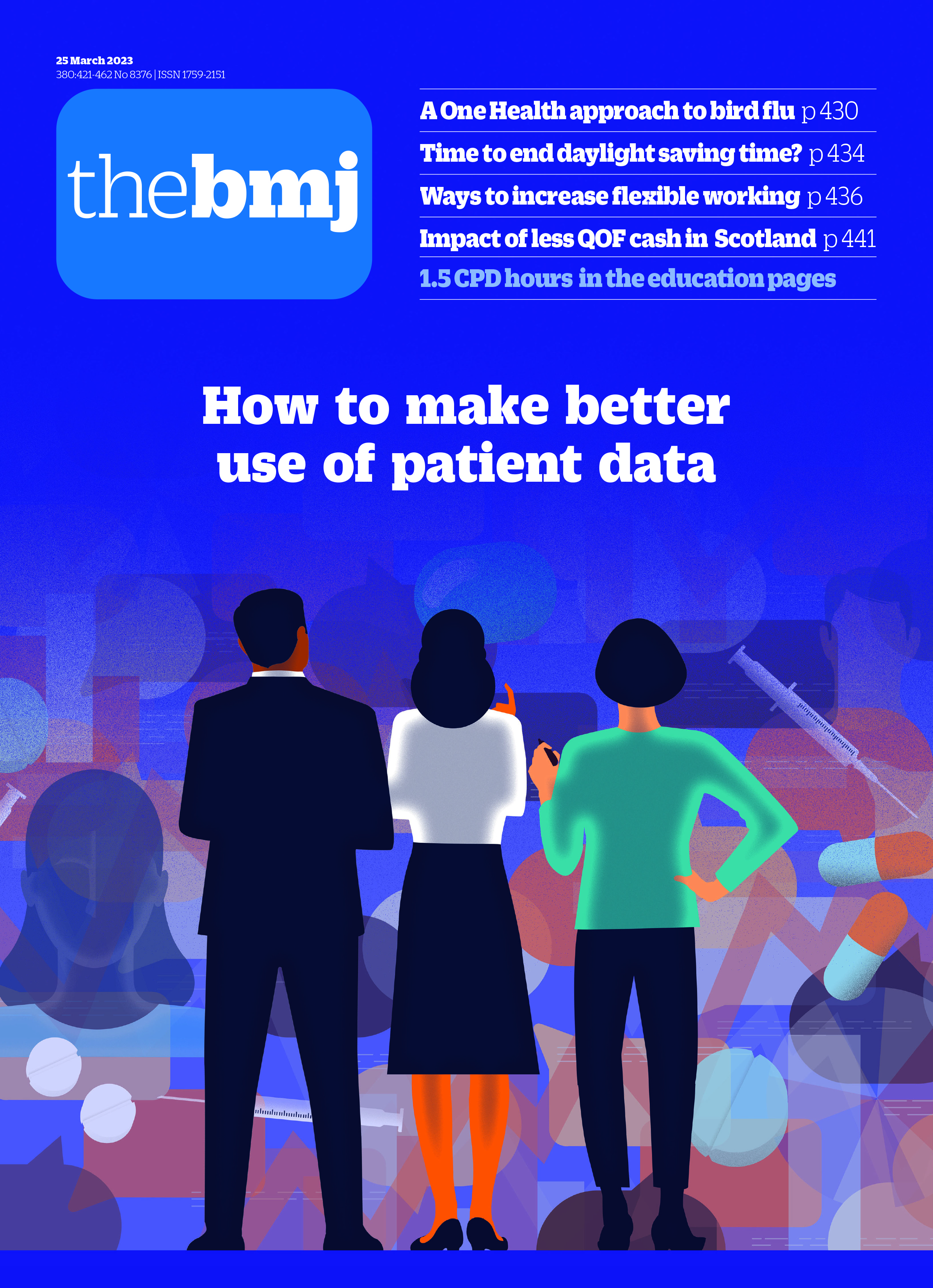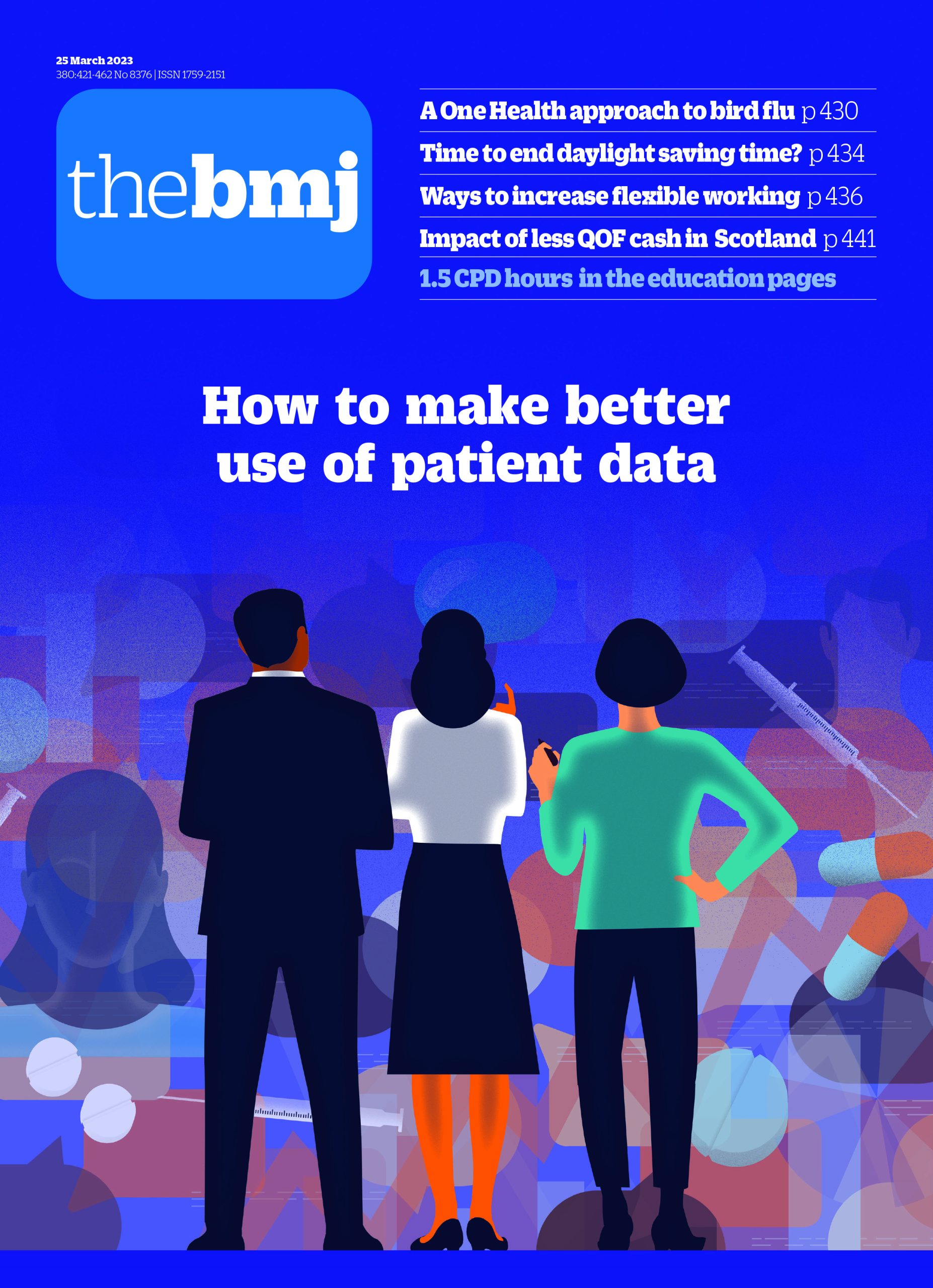
- Matthew Limb, freelance journalist
- London
- mattlimb.uk{at}gmail.com
Campaigners against gambling harms are urging ministers to root out “stigmatising” training materials for health workers that blame individuals for their addiction and shift responsibility away from the gambling industry.
New research has examined gambling related training materials including guides, eLearning courses, and workshops that are either produced or commissioned and funded by charities, such as GambleAware, that are almost entirely funded by voluntary donations from the gambling industry.
Tackling Gambling Stigma, a non-profit organisation, said in a report published today, that most of the materials are of “very poor quality.”1 They often link harm to individual behaviour rather than addictive products, mass advertising, or exploitative industry practices such as inducements, the report said.
The report comes as the government prepares to publish a review of the Gambling Act 2005, which campaigners including parliamentarians and leading NHS experts hope will herald a new public health approach to dealing with gambling harms that will eradicate stigma and remove industry influence from provision of treatment, training, and education.
Alexander Kallman, managing director of Tackling Gambling Stigma, who cowrote the review, said that general practice staff and other health workers were accessing the materials from charities’ websites. “A lot of it is highly stigmatising, saying the individual is to blame for their own problems,” he told The BMJ.
He said that the purpose of the review was “not to call these organisations out” but to evaluate healthcare training from the perspective of public health, stigma, and discrimination and make recommendations for future training. “The government cannot leave it up to small charities to develop and deliver training materials for healthcare professionals when you are looking at something that is a public health crisis. There is no strategy, no oversight, no evaluation, and no unified front for how we’re going to teach people how to deal with this,” he said.
The review was commissioned by the Greater Manchester Combined Authority and Gambling With Lives, a charity that supports bereaved families. Tackling Gambling Stigma said that studies show that one in five of the UK population is harmed by gambling—either directly or indirectly—with up to 1.44 million adults addicted and up to 496 suicides occurring each year linked to gambling in England alone. It said that most gambling harm was caused by highly addictive online gambling products.
The review found that none of the materials made clear declarations of potential conflicts of interest, such as gambling industry funding, and many did not reflect the experience of people who had been harmed by gambling and perpetuated “gambling industry narratives.” There was a strong focus on mental illness or other “vulnerabilities” as the cause of gambling harm, indicating that only a few people with weaknesses were harmed, while gambling is safe for everyone else. There was inconsistency in what healthcare workers were being trained to do and around what level intervention should occur.
Kallman said, “The absence of clear guidance and leadership from the government has led to a fragmented, inconsistent approach, undermining the effectiveness of training materials and potentially causing more harm than good.”
Liz Ritchie, cofounder of Gambling with Lives and member of the NICE Guideline Committee on Harmful Gambling said, “Through relentless advertising and industry funded messaging society has been sold the myth that gambling is a safe bit of fun and that any harm is the responsibility of the individual who hasn’t ‘taken time to think’ or ‘stopped when the fun stopped.’ This narrative dominates training materials for health professionals, heaping blame and stigma on individuals and contributing to harm. We know; we read the suicide notes.”
Zoë Osmond, chief executive officer of GambleAware, said: “Our highest priority is helping those experiencing gambling harms and making sure that they can get the support they need. In response to the absence of any national system of workforce training, GambleAware as lead commissioner has supported other organisations—such as the Royal Society of Public Health, the Royal College of GPs, and Citizens Advice—to develop their own training programmes and materials. In line with our robust governance, GambleAware had no input into the content or delivery of these independent programmes. The gambling industry continues to have no input or influence on our work.”
Zero tolerance on funds from gambling industry
Consultant psychiatrist and addiction specialist Henrietta Bowden-Jones founded the UK’s first specialist clinic for problem gambling in London in 2008. Today she hopes that any future levy on gambling industry profits will enable a new public health approach to tackling gambling harms. This includes a “national educational drive to remove stigma from all teaching to do with gambling.”
“I would hope to see one independent source of funding for anyone delivering treatment so we may share the same ethos, the same lack of stigma, the same independence,” she said. “The reality is the majority of people I’ve met in this area would be delighted to have some stigma training and to be aware of our own unconscious bias that may be coming from other fields of treatment as well.”
More “stringent research” was essential to better inform education and services, she added. “Until now, no one has bothered to fund the right studies to give us a really good idea with a really good methodology about where the harm is, how bad the harm is across the country, who’s suffering most, what interventions really work. If you look at England, how many randomised controlled trials are there for interventions? Hardly any. And that’s all to do with not properly funding the research streams. That should change,” she said.
She said that the NHS would continue to work with other agencies and charities because it could not work in isolation. “I will work with non-statutory agencies, as will the whole of the NHS, as long as they don’t get direct funds from the gambling industry, that is our absolute request.”
